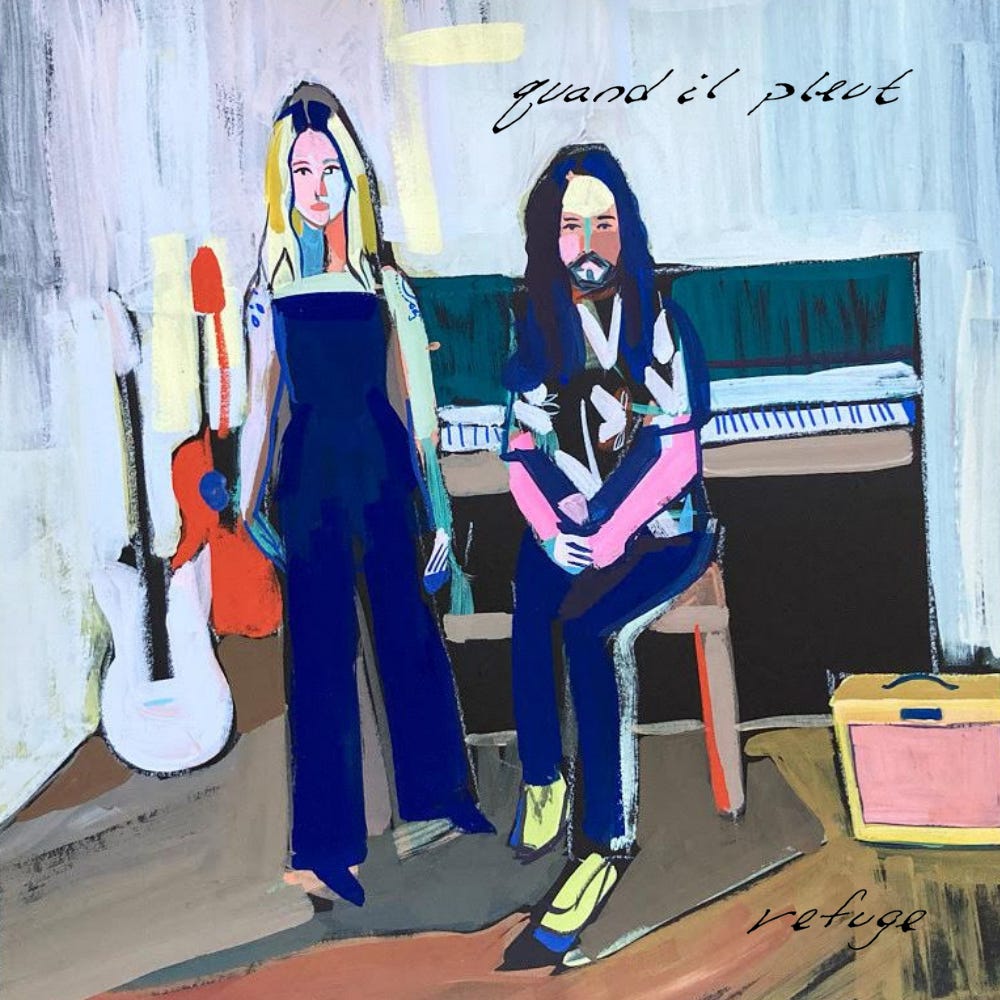
On this episode of the Dance Cry Dance Break, we open with “Wrong World,” a new original story by New York Times bestselling author of the Warm Bodies series Isaac Marion followed by refuge, the debut album available only on the Dance Cry Dance Break from Seattle duo Quand il Pleut.
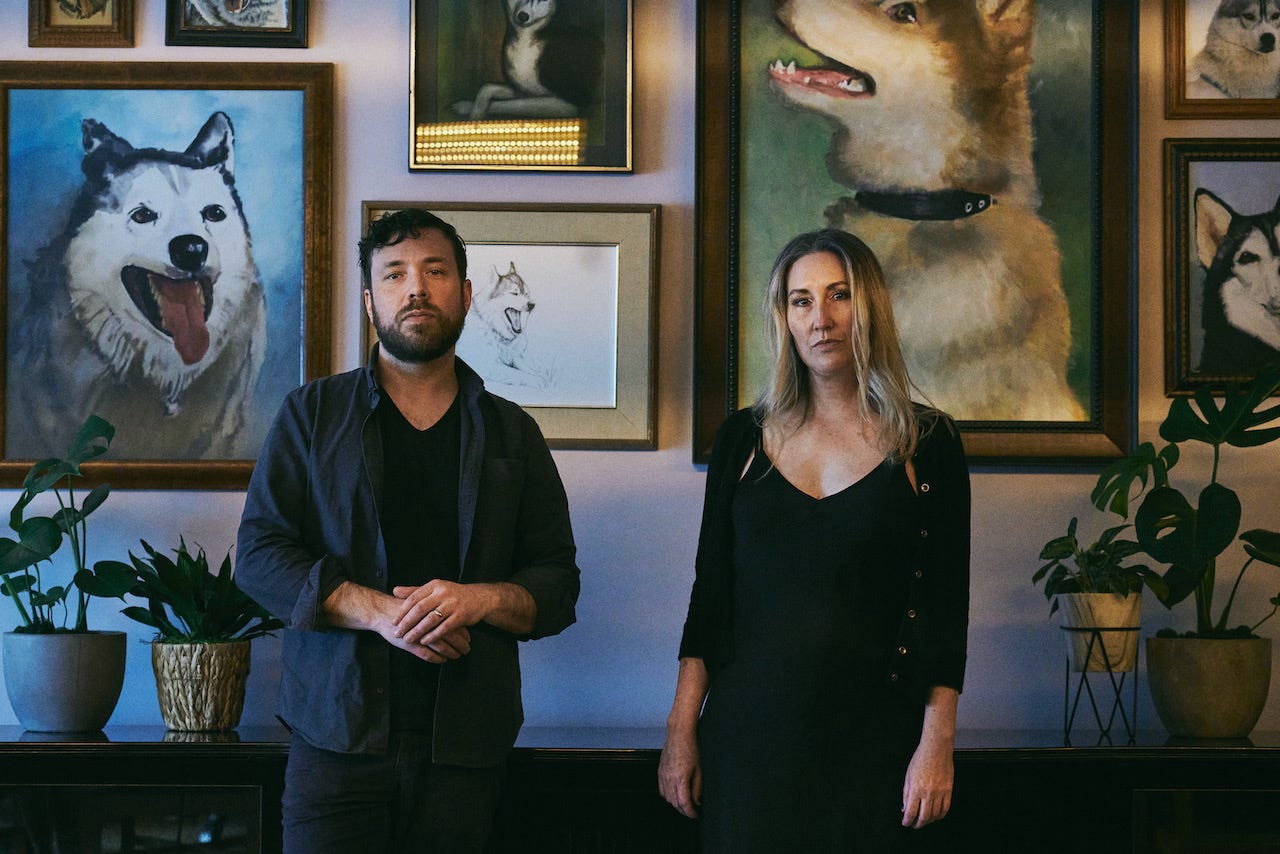
Wrong World
by Isaac Marion
Beth sits alone in a cafe she’s never seen before, sipping pale yellow coffee that tastes like cherry juice, watching impossibly fat rain hammer the pink pavement, diligently straining to learn about this world she’s fallen into.
Her laptop sits in front of her, but the internet is still too overwhelming. It was overwhelming even where she came from, but here, without any context to shape its flood of information, it might as well be pure noise. She prefers to learn slowly by looking and listening, a few revelations at a time.
“Did you hear about Maxico?”
“Yeah but I don’t get it. Why would Maxico attack Colomdia? Weren’t they allies in the Pedro Bank war?”
“All about that lithium, baby.”
Beth finds eavesdropping to be the most manageable method. A drip feed of information slow enough to seep in without drowning her. The best way to learn a language is immersion. She struggled with Spanish for years until she spent a few months in Mexico—which is apparently now “Maxico,” which has apparently always been “Maxico” and she somehow had it wrong her whole life. So she immerses herself in what used to be her own language, her own country and culture, now altered in so many ways she might as well start from scratch here in the Unified States of Anerica.
“Sorry, do you have cow’s milk by any chance? I’m allergic to dandelion.”
“He says he’s more of a cat person, doesn’t really like raccoons, is that a red flag?”
“Should we do Greenland for winter break? Soak up some darkness?”
She scribbles lists in her journal of things she doesn’t understand, things to research further when she’s a little less overwhelmed. But some questions resist research. The social norms and unwritten laws.
“Of course they’re closing the beach, Beth, four people drowned this year.”
“What do you mean ‘why are we freaking out’? Malaysia put trade sanctions on Brunei, it’s called ‘global conflict,’ Beth.”
“You’re going on a walk without a sunscreen rubdown? That’s ten minutes closer to cancer.”
Sometimes the facts are familiar and it’s only the context that’s shifted, the mutual understanding of normality which has suddenly ceased to be mutual. Other times it’s the facts themselves, a sudden onslaught of unbelievable statistics and rattling confrontations.
“You kissed someone without a mouth screen? That’s a one in four chance of syphilis, Beth.”
“Beth, you should never stop for gas alone, the average gas station has a hundred kidnappings per year.”
“You really don’t have asteroid insurance? We get two hundred house strikes a month in this state.”
That can’t be right, she finds herself saying again and again. She’s never heard of that. She could have sworn.
But she’s never completely sure. Did everything really change, or was she always wrong? Had she been misspelling “Anerica” all her life? Undervaluing all the dangers around her? Was she simply that uninformed?
“Did you see what Mackie tweeted about AOP?”
“Oh my God, so messed up, right? That one’s going straight to the Pound.”
Beth doesn’t recognize most of the names she overhears. Politicians? Pop stars? Both? A quick google would slot them into the puzzle, but it’s a puzzle with no edges, ever-expanding—fill in one section and another one spills off the table.
“Is the Pound even still a thing?”
“It is as long as Tertia’s on the Desiccant train.”
“Ha! Fair enough.”
Sometimes the references are so thick, Beth can’t follow a single word. Is it just her age? Did she fall into a foreign universe the moment she turned forty? She sneaks a glance at the two women chattering incomprehensibly at the nearby table. Their eyes are shrewd, their conversation sharp, their rejoinders instantaneous, everything about them snaps—and they’re in their mid-fifties.
No, this is not just aging. This is not the natural withering of her cultural umbilicus as she drifts out from the heartbeat of humanity. Something happened. This is not the same world. She looks out the window for her daily confirmation: those surreal clouds branching across the sky in complex fractal patterns, dumping hurricane torrents of rain that no one but her finds notable.
“Seems pretty typical for Febrewary,” the barista replies when she remarks on it—that unexpected voicing of the silent “r,” and the usual confused squint. “The street pumps are keeping up with it, but I hope you brought your body bubble!”
Beth did not bring a body bubble. But she spots dozens of people who did–calm and dry inside clear plastic umbrellas that extend all the way to their feet– as she sprints across the parking lot, screaming through her teeth while the rain blasts into her like buckshot. She gets in her car—right hand drive in the USA—and drives home, her heart pounding as she hurtles down the “wrong” side of the road while the rain covers the windshield like gel and blurs the world into abstraction.
“Beth, this copy for the luggage…what is ‘that’s how we roll’? Did you mean ‘that’s the way the wheel spins’? What is ‘vive revolution’? Is that even Anglo?”
Her eyes glisten in the lunar glow of her laptop as she skims confused emails from co-workers and friends. It won’t be long before she loses her job. Even something as sterile as copywriting requires basic cultural literacy, and her editor is almost done with her. Everyone else might be too.
“Beth, how do you not know this?”
“Beth, that’s really not okay.”
“Beth, what are you even talking about?”
For a while—three months? Six? How long has she been here now?—her friends tried to bridge the gap. They tried to be patient and understand what was happening to her, but she had no explanation to offer them. And after enough awkward moments, accidental offenses, and baffling displays of ignorance, they have begun to pull back from her. Or she’s pulled back from them. Or the space between them has simply grown with the expansion of the universe, everything further away without ever moving at all.
She shuts her laptop and sits in the dark. She doesn’t turn the lights on in her apartment anymore because she doesn’t like to look at the wrongness. The hardwood floors are now vinyl, the walls a cold green she knows she would never have chosen, her bookshelf full of books she’s never read and can’t imagine buying, her family photos replaced with generic landscapes. Her home feels fake, like a set built by her captors in an attempt to keep her calm. But of course she has nothing so comforting as captors. No one to beg or scream at. Her prison is unlocked and unguarded, and that’s why she can’t escape.
How? When? Why?
She has spent many sleepless nights scraping at these questions, searching every crevice for a single grain of explanation for her presence on this offset Earth. But the event left no clues. There was no flash of light, no stepping through a portal onto bubblegum streets under fractal skies. Nothing disappeared or rearranged before her eyes. The sidewalks were normal, and then there were some pink ones, repaved in her absence, and then a few more, and the internet insisted this had been standard since 2015, a cost-effective polymer that will replace everything by 2030, and then a storm brought the strange clouds, and everyone said oh look, fractalnimbus clouds, a rare phenomenon, but known.
She couldn’t pin it down. She couldn’t point and scream, “There! You all saw that!” Everything happened behind her, or just outside her periphery, or while she slept or blinked. Her arrival was a gradual noticing, a mental list of wrongness that accumulated week after week until she had no choice but to acknowledge it. And by then it was too late to trace.
She is beginning to accept that this will never make sense. She is an electron around an atom in a molecule of a dust speck on a gear in the engine of the cosmos, and she has no reason to expect explanations as she spins through its infinite machinery. Things will simply happen.
There is only one question she might answer. She asks it again as she falls into bed without ever turning on the lights:
What will she do?
Will she settle here? Will she attempt to make a home in this damp, dark country? Will she keep listening and learning and smiling and nodding until she can pass herself off as a native? Laugh at jokes she doesn’t understand, accept assumptions she doesn’t find self-evident, find some non-cultural job on the fringes—pouring pink pavement, perhaps—make just enough money to survive the new horrors, and quietly disappear into a world that isn’t hers?
At 5:00 AM, as the horizon is just starting to glow, she climbs out of bed and starts packing. A change of clothes. A little food. A sleeping bag and a tent. She packs as if for a weekend campout, but when she shuts the door behind her with wet and burning eyes, she understands that she won’t be coming back.
She spends her first night curled in her car. Her second in her tent in a forest of blue-barked trees. Her third in a motel on the coast of the “Nevada Sea.” Her fourth on a desert plateau buffeted by icy winds under a moon that’s much smaller than she remembers.
She has decided she will not be an immigrant. She will be an explorer. She won’t spend her life straining to belong, begging for a corner of comfort on this hostile foreign continent. She will roam it with the wonder and horror it deserves. She will discover it. And when her supplies run out, when she’s sold her car and computer and peeled herself down to the skin, she will continue on foot and naked until she finally starves or freezes, and that will be an answer to her questions.
She will accept that answer. Not gladly—she had lovelier plans for her life in the sweet, simple world she came from, and she allows herself fair bitterness for her unfathomable cosmic kidnapping—but she will accept it. She will cling to the cold thrill of discovery for as long as she possibly can. And if this world proves uninhabitable, she will discover that too. She will note it all down in her journals, and she will leave it for the explorers who find her. Maybe they will understand.
The album on today’s show was written, produced, and performed by Natalie Bayne and Matt Badger, mixed by Natalie Bayne, mastered by Rachel Field at Resonant Mastering. String arrangement and additional production by John Sinclair and Phillip Thorpe-Evans, live drum recording by Nic Danielson.
The Dance Cry Dance Break is written and produced by Natalie Bayne and recorded and edited by Moe Provencher. Our stories are edited by Timaree Marston.
Theme music is Red Lines, by Dance Cry Dance Records artist Tiny Tiny.
Dance Cry Dance is an arts collective in Seattle, WA. Paid subscriptions support our artists and writers.




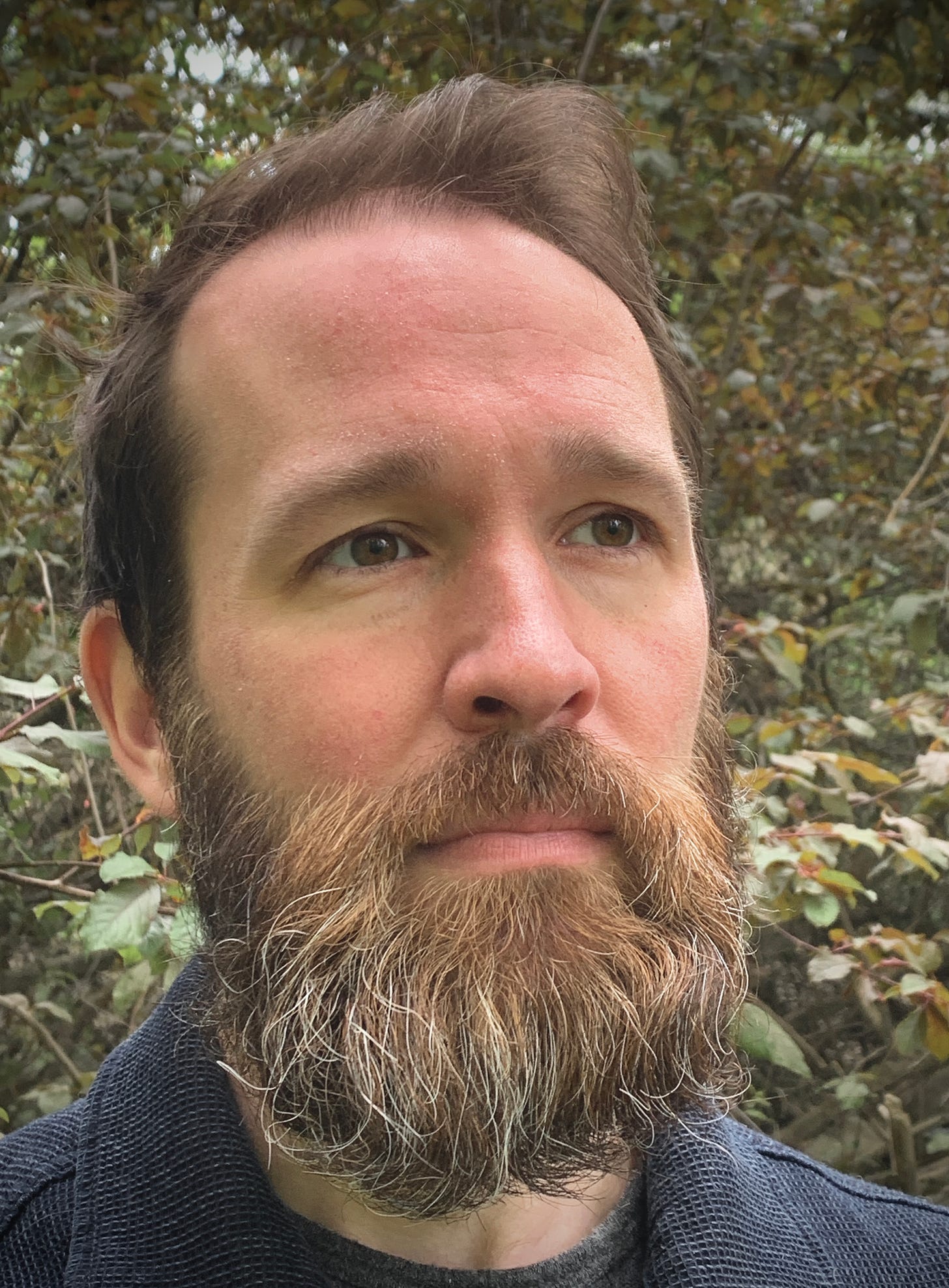
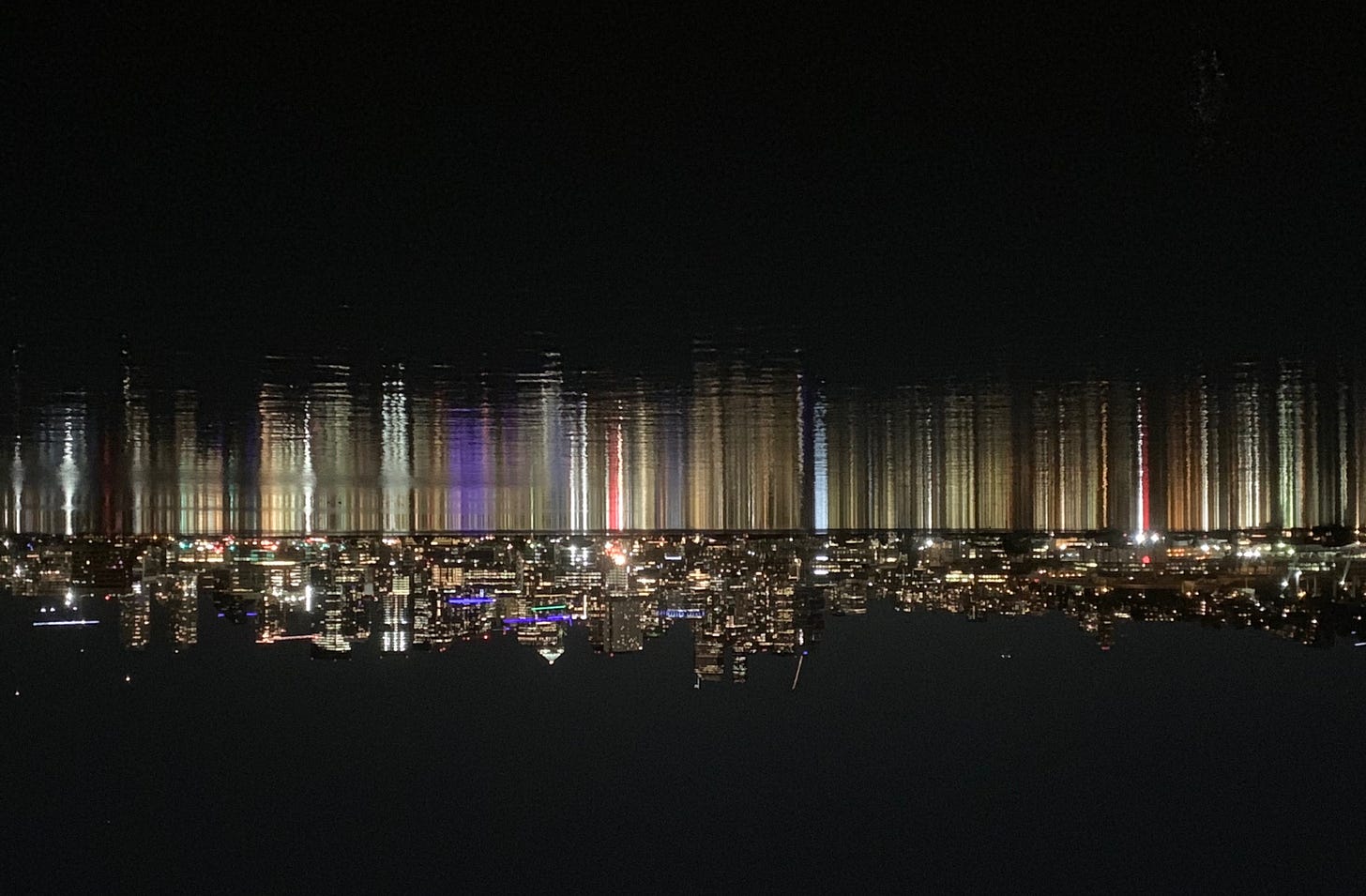


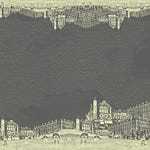
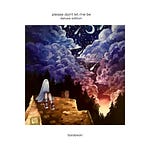


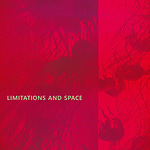


Break 004: (public edition) Wrong World/refuge